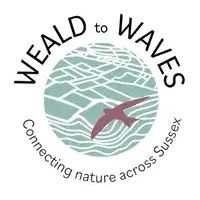Do nature corridors reduce food production?
By Weald to Waves - 03 February 2023
Corridors can and must exist in complex landscapes such as ours in Sussex. There needs to be a dual conversation about ‘land sharing’ across land optimised for food production and ‘land sparing’ across unproductive land.
“Landowners and farmers will continue to produce food along the corridor and that is vital,” says James Baird, arable farmer and Weald to Waves co-founder who farms one of the last undeveloped stretches of coastline in Sussex. “But we’re asking people to put nature at the forefront of their decision-making across their landholding. That is the radical shift we need to make.”
Arable land like James’ farm can be managed in ways that protect ground-nesting birds, for instance. The edges of fields can be left for wildflowers and hedges planted around crops to help reduce the negative impacts of extreme temperatures and strong winds on the plants we grow for food. Many of our iconic species like turtledoves and lapwing have evolved alongside our traditional farming systems.
James is not alone. There is a growing number of farmers exploring sustainable ways of farming in vibrant landscapes, alongside the pressures of climate change and poor soil health. The removal of sea defences on James’ land will see areas reclaimed as salt marsh, a critical habitat that is now largely lost from Sussex’s shoreline. While this will remove some land from production, he is continuously looking at other methods of naturally improving productivity, such as using beneficial bacteria and fungi which could improve legume yield.
By putting back wild margins and salt marsh, he is providing food security for the whole system and boosting wider insect and bird populations that offer natural pest control. This benefits the national food chain, his family business, and the migratory species that use the farm to refuel after long journeys.
Both producers and consumers are starting to acknowledge the role that nature plays as an essential service provider. The ecosystem services they provide are our ‘natural capital’. Without their irreplaceable functions such as pollination, climate regulation, soil health, and water filtration, we will be jeopardising our future food security and there will be no negotiation in the world that will bring that back.

